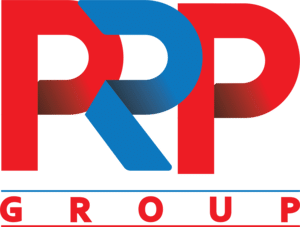From Crisis to Opportunity: How PR Agencies Turn Challenges into Brand Wins

“Never let a serious crisis go to waste. And what I mean by that is it’s an opportunity to do things you think you could not do before.” These words by American politician and diplomat Rahm Emanuel perfectly encapsulate how organizations can leverage crises to emerge stronger.
In today’s hyper-connected world, a brand’s reputation can be destroyed within hours. A single negative news cycle, viral social media backlash, or poorly handled crisis can cause long-term damage to consumer trust. However, history has shown that with a well-executed PR strategy, crises can be transformed into opportunities. Instead of merely containing the fallout, companies can emerge stronger, rebuild credibility, and enhance their market position.
This article explores how PR agencies have successfully managed crises across India and the West, turning them into brand triumphs. We will examine how these crisis management strategies impact a company’s bottom line and why PR Professionals (PRP) is the ideal agency for handling such situations.
Effective crisis management relies on swift, transparent, and empathetic communication. Brands that have embraced these principles have not only mitigated damage but have often emerged more resilient and trusted than before.
Johnson & Johnson’s response to the 1982 Tylenol poisoning incident stands as one of the most well-documented crisis management success stories. When seven people died after consuming cyanide-laced Tylenol capsules, the company immediately pulled 31 million bottles from shelves, incurring costs of over $100 million. Rather than deflecting blame, Johnson & Johnson prioritized consumer safety and transparency. The company introduced tamper-evident packaging, launched an extensive public awareness campaign, and successfully re-established trust. Within a year, Tylenol recovered its market share, and the incident set a new standard for corporate crisis management.
In 1993, Pepsi faced a crisis when reports surfaced of syringes found in Diet Pepsi cans. Instead of taking a defensive stance, the company used video evidence to prove its production process’s integrity. By promptly releasing factory footage showing how cans were sealed before reaching stores, Pepsi demonstrated that contamination was impossible. Through maintaining open communication with consumers and media, the crisis was resolved without a product recall, and Pepsi’s sales remained stable.
Indian Brands Rising Above Crises
India has witnessed numerous brand crises, many of which have been handled with remarkable PR strategies that transformed adversity into growth opportunities.
In 2003, Cadbury India faced a major crisis when worms were reportedly found in its Dairy Milk chocolates. Initially, the company blamed retailers for improper storage, but this defensive stance failed to reassure customers. Recognizing the need for a proactive approach, Cadbury launched a PR campaign featuring Bollywood legend Amitabh Bachchan while introducing improved tamper-proof packaging. This combination of transparency, innovation, and influencer marketing helped Cadbury regain consumer trust and recover its market share.
Nestlé India’s Maggi noodles encountered an existential crisis in 2015 when food regulators alleged excessive lead levels in their products. The company responded by voluntarily recalling the product, conducting extensive independent testing, and maintaining transparent communication with consumers. After clearing safety tests, Maggi relaunched with a powerful PR and marketing campaign focused on consumer nostalgia and trust, regaining its position as India’s leading instant noodle brand within a year.
The Role of PR Professionals (PRP) in Crisis Management
Successfully navigating a crisis requires experience and a deep understanding of consumer sentiment, media dynamics, and digital communication. PR Professionals (PRP) leads the field by offering tailored crisis management strategies that protect and rebuild reputations.
PR Professionals employs a comprehensive strategy that encompasses rapid response, ensuring official statements and media engagements are executed swiftly to prevent misinformation. The agency emphasizes transparent communication, helping brands address crises with sincerity rather than corporate jargon. Their strategic rehabilitation process goes beyond damage mitigation to proactively rebuild brand credibility through media interactions, influencer collaborations, and community engagement. PRP excels at online crisis communication in today’s digital age, ensuring positive brand narratives while effectively countering misinformation. While crises are inevitable in business, a company’s response determines its long-term reputation and financial success. The most effective crisis management strategies transform adversity into growth opportunities. As Johnson & Johnson, Pepsi, Cadbury, and Nestlé demonstrated, strategic PR can convert moments of vulnerability into opportunities for strengthening consumer trust and loyalty.
